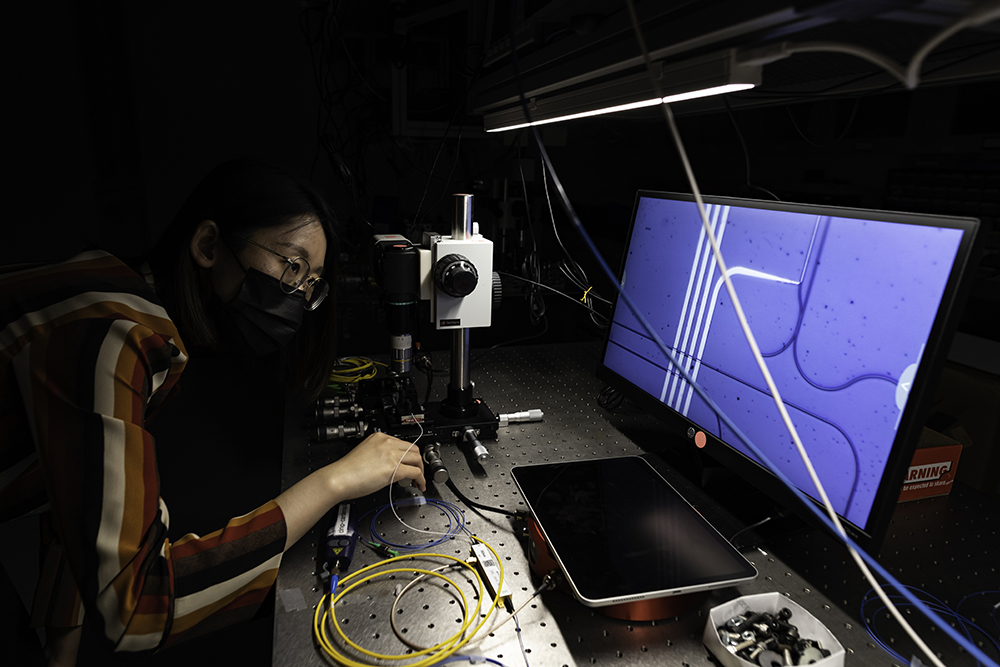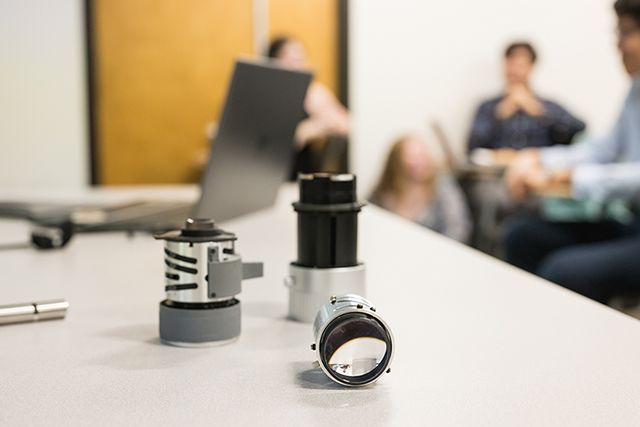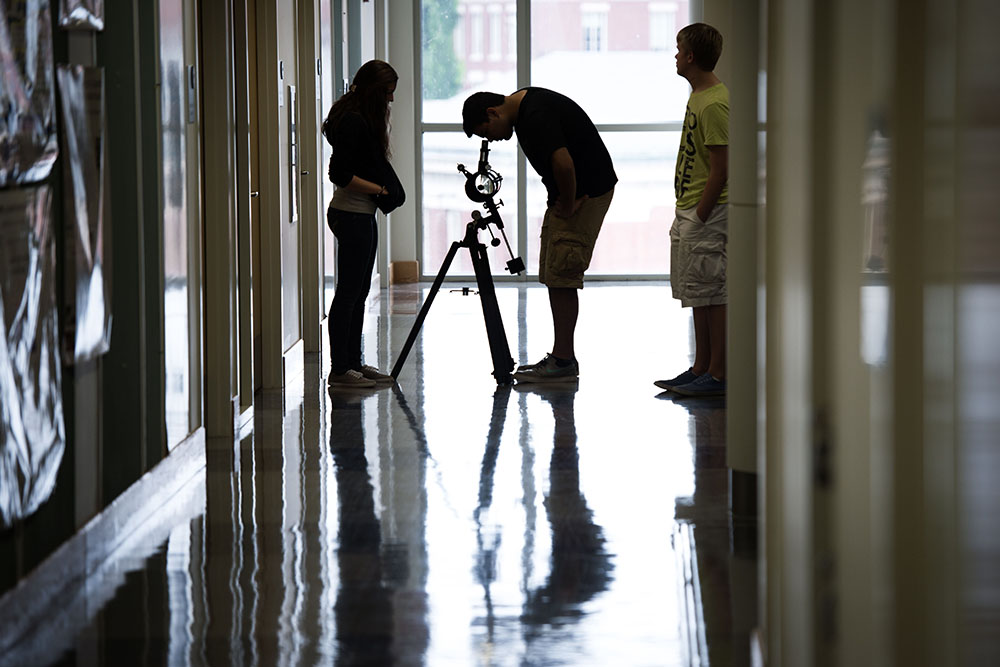Academics
The institute offers two majors—a BS in optics and a BS in optical engineering, and also a minor in optics.
Optics vs Optical Engineering
Both optics and optical engineering majors have common course requirements through senior year. This gives students more flexibility in scheduling courses, while providing an excellent foundation in optics and opportunities to take important, skill-oriented technical electives. Both options prepare students well, either for graduate work or for a career in optics, photonics, imaging or laser science following graduation.
Optics Major
Optics majors gain a comprehensive foundation in optics along with a wide choice of elective courses that students can choose in preparation for careers in optics, photonics, imaging and laser science. The capstone experience in the senior year features a two-semester senior thesis that provides them with research experience and opportunities to report and present their findings.
Optical Engineering Major
The optical engineering degree is ABET accredited and offers the same comprehensive foundation in optics offered to optics majors. The capstone experience for optical engineering majors is a senior design experience that emphasizes a team-based design process working on customer sponsored projects.
Optics Minor
Optics minors get a broad introduction to optics, learning everything from geometrical optics to interference and diffraction. Students also get to customize their own minor, choosing two 200-level courses from the Institute’s offerings.

Using Your Degree
What do Optics Professionals Do?
Optics overlaps with many engineering and scientific disciplines, including physics. Optical engineering is rapidly expanding into virtually all segments of industrial research and product development. Because optics is so interdisciplinary, optics professionals and researchers work in a wide variety of fields, including:
- Design of complex optical devices, instruments, and systems
- Precision optical metrology
- Imaging systems for semiconductor chip fabrication and inspection
- Biomedical instrumentation and diagnostics
- Illumination systems
- Color and display technology
- Ophthalmic measurements and instrumentation
- Laser science
- Internet and data center technologies
- Advances in alternative energy
- Novel optical materials
- Quantum information science and technology
- Condensed matter physics
- Image recognition and processing
- Design and engineering for space optics
Career Outcomes
Optics affects a wide range of industries and specialized research, so the need for qualified professionals is in high demand.
97%
Of graduates 2023 have either been accepted into a graduate program or have been hired
90,942
Was the average salary of the optics and optical engineering class of ’23 who were hired into industry
Whether our students continue their education or go straight into industry, they are frequently recruited by prestigious organizations such as:
Graduate School
- University of Rochester
- Princeton
- Caltech
- Harvard
- Boston University
- Duke
- University of Arizona – Wyant School of Optical Sciences
- Columbia University
- Rice University
- University of Toronto
- Vanderbelt
- California Berkeley
Industry
- ASML
- Edwards Air Force Base
- L3Harris
- Meta
- Apple
- Lockheed Martin
- Raytheon
- Corning
- Huawei
- Edmund Optics
- NASA
- BAE
Career Connections
In addition to working with our award-winning faculty, our students also have the opportunity to participate in the Institute’s Industrial Associates program. While mostly aimed at current industry and academic professionals, the Industrial Associates program gives Institute students multiple opportunities to network with and connect with industry leaders. These connections have helped our students obtain internships, research assistantships, and jobs.
Visit the Industrial Associates pageProspective Students
The Institute of Optics offers a free, one week Photon Camp for high school students. Interested students can also contact Dustin Newman, the Institute’s undergraduate program coordinator, to visit the Institute.
Visit the Photon Camp pageOptics in Action
Hot Science
If you've ever used a magnifying glass to concentrate the sun’s rays on a summer day, you know that solar energy can produce surprisingly high temperatures. What if you gather that energy and focus it on a pot of popcorn? Would it pop the popcorn, just like on a stovetop?



